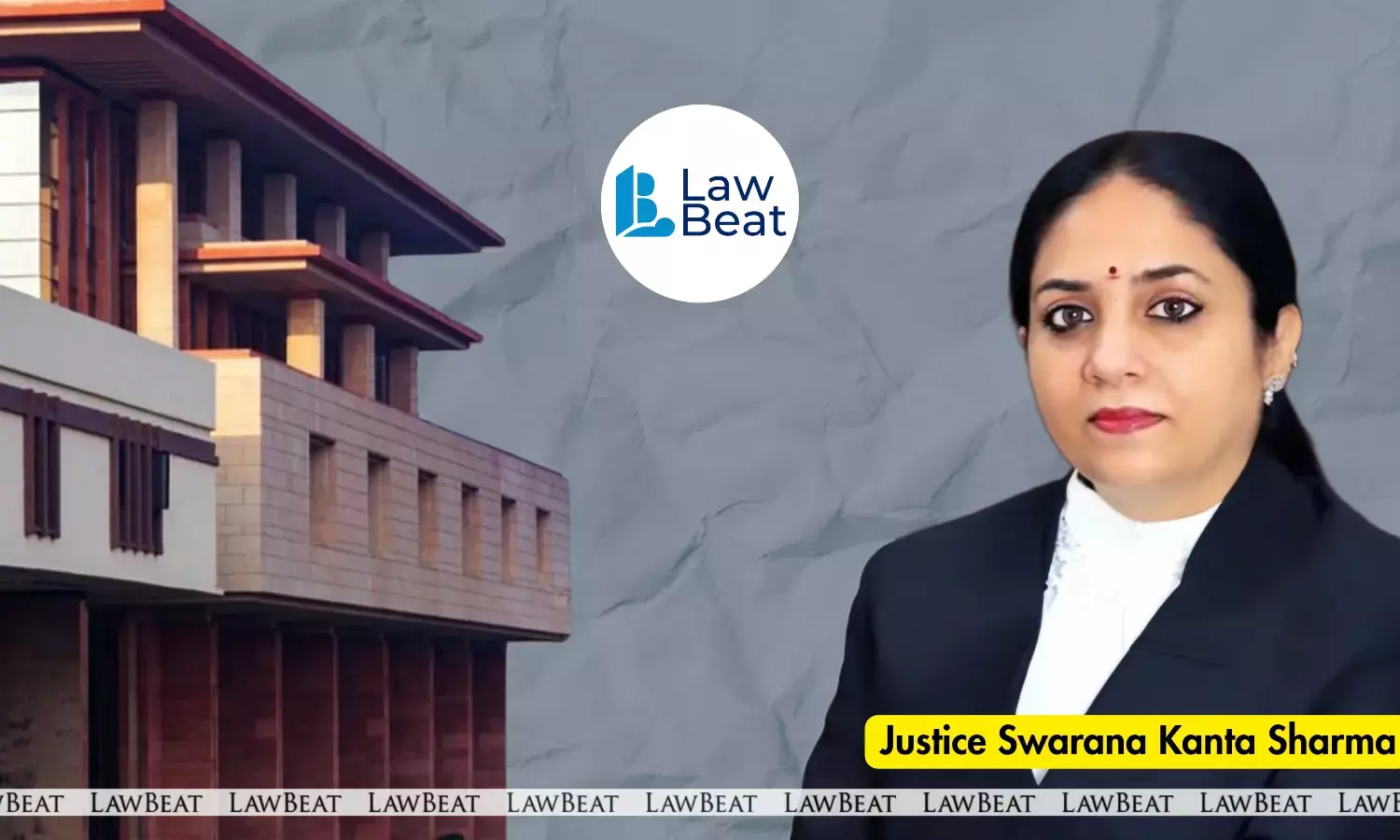State’s Delay in Filing Appeals in Serious Offences Undermines Victim’s Pursuit of Justice: Delhi HC

High Court said it was also mindful of the social reality that the fact of a woman's earning or employment does not eliminate or absolve her of the financial, emotional, social, and other burdens connected with child-rearing.
The Delhi High Court recently held that the State’s delay in filing appeals in cases involving serious offences can cause a setback to the victim’s pursuit of justice.
A bench led by Justice Swarana Kanta Sharma observed, "When the State delays in challenging orders which may adversely affect the victim s case, such as an order of discharge, it is not merely a procedural lapse but a setback to the victim‟ 's pursuit of justice. Such delay may, in effect, prejudice the victim's right to a fair and complete adjudication of the allegations, eroding their faith in the system meant to protect them."
Noting that there have been repeated instances of inordinate delays by the State in filing appeals, the High Court remarked that this is a matter of serious concern. The court added, “While courts may, in appropriate cases, adopt a liberal approach while condoning such delays, this cannot become a shield for systemic apathy or bureaucratic inefficiency.”
Observing that the administration of criminal justice cannot afford to be prejudiced by avoidable procedural lapses or lack of diligence on the part of those entrusted with ensuring timely legal action, the HC directed that a copy of the order be sent to the Director of Prosecution, GNCTD.
It also directed the DoP to examine the circumstances leading to delays in filing appeals and petitions and take appropriate steps to prevent their recurrence in the future.
"The State must ensure that institutional mechanisms are strengthened to track, monitor, and file appeals, revisions, etc. within the prescribed limitation period,” the Court said.
The observations and directions came in response to a plea filed by the State seeking condonation of a 325-day delay in filing a revision petition. The State had challenged the discharge of an accused from charges under Section 308 of the Indian Penal Code, which deals with an attempt to commit culpable homicide, in a case registered at Police Station Roop Nagar.
During the proceedings, the public prosecutor submitted that administrative hurdles and the movement of the file from one table to another had caused the delay.
It was further argued that the assault in question involved serious allegations, including the victim being hit on the head and face with bricks.
The State also contended that the delay was neither deliberate nor intentional and should therefore be condoned in the interest of justice. In support of the argument, the public prosecutor relied on the Supreme Court's judgment in Sheo Raj Singh v. Union of India and State of Nagaland v. Lipok Ao.
On the other hand, counsel for the accused argued that the delay was inordinate and unjustified, and that the application itself reflected a lack of diligence and inaction on the part of State officials.
After hearing the arguments presented by both sides, the High Court allowed the condonation of delay but issued a caution to the State against recurring delays.
“A copy of this order shall be forwarded to the Secretary (Law), Department of Law, Justice and Legislative Affairs, GNCTD, by the Registry within two working days. The State shall formulate an appropriate policy in this regard, and the same shall be placed before this Court within one month from the date of receipt of this order,” the Court directed.
For Petitioners: Mr. Manoj Pant, APP for the State with SI Pinki, P.S. Sultanpuri and SI Rahul Garg, P.S. Roop Nagar, Delhi
For Respondents: Mr. Ripin Sood and Mr.Yashovir Singh, Advocates.
Case Title: STATE versus YOGESH @ GOLU & ANR
Read order:
